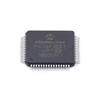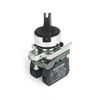MCU stands for microcontroller unit, and they are small computers that are used in embedded systems. They are widely used in industrial applications, medical devices, and consumer electronics. An MCU is a semiconductor device with internal memory, programmable functions, and I/O capabilities.
What is the Microcontroller Unit (MCU) In A Microcontroller?
Microcontrollers are used in a wide variety of applications. They are found in everything from home appliances to industrial equipment, and they are even used in space exploration missions.
Microcontrollers are small computer chips that are programmed to perform specific tasks with the use of software. They can be manufactured in semiconductor fabs and then soldered onto circuit boards or integrated into larger systems depending on their application. Microcontrollers have evolved over the years and have become more sophisticated than ever before. Today’s microcontrollers include more functions, faster processors, and larger memories than ever before.
The MCU is capable of executing a series of instructions to perform specific tasks, such as reading sensors, controlling motors, and communicating with other devices. It operates on a set of instructions stored in its memory, which it fetches and executes one after the other. This makes it an efficient and reliable solution for automating repetitive and complex tasks, as it can process data and make decisions in real time without human intervention.

What Are The Benefits Of MCU? Microcontroller Unit
What are the benefits of MCU? MCU, or microcontroller unit, is a small computer on a single integrated circuit that is designed to control specific devices or systems. The benefits of MCU include:
Cost-effective: MCUs are typically less expensive than other computing solutions, making them ideal for applications with cost constraints.
Low power consumption: MCUs typically consume less power than other computing solutions, making them ideal for battery-powered devices.
Versatility: MCUs can be programmed to perform a wide variety of functions, making them ideal for many different applications.
Integration: MCUs can integrate multiple functions onto a single chip, reducing the number of components required for a given application.
Real-time processing: MCUs are designed to process data in real time, making them ideal for applications that require fast response times.
Small size: MCUs are typically small and compact, making them ideal for applications with limited space.
Easy to use: MCUs can be programmed using a variety of software development tools, making them accessible to a wide range of developers.
Overall, the benefits of MCU make them an ideal solution for a wide variety of applications, including home appliances, medical devices, automotive systems, and many more.
MCU: The Little-Known Secret In Electronics That Automates Human-Driven Operation
The world of electronics is full of fascinating technologies and innovations that have transformed the way we live, work, and communicate. One such technology is MCU (Microcontroller Unit), a small but powerful device that automates human-driven operation in a range of electronic systems.
At its core, an MCU is a small computer system that integrates a microprocessor, memory, and input/output peripherals into a single chip. This compact form factor and its ability to interface with other electronic components make it an ideal solution for controlling and automating a wide range of processes.
MCU technology is a little-known secret in electronics that is transforming the way we automate human-driven operations. Its versatility, adaptability, ease of use, and reliability make it an ideal solution for a wide range of applications, from consumer electronics to industrial control systems. As technology continues to evolve, we can expect MCUs to play an even greater role in automating the world around us.
How MCU Can Give You Antidote To Artificial Intelligence?
In recent years, artificial intelligence (AI) has become increasingly pervasive in our lives, from virtual assistants on our smartphones to autonomous vehicles on our roads. While AI has many benefits, there are also concerns about its potential to replace human workers and make decisions without human oversight. This is where microcontroller units (MCUs) can provide an antidote to AI.
MCUs are small computer systems that integrate a microprocessor, memory, and input/output peripherals into a single chip. They can be programmed to perform specific tasks, such as reading sensors, controlling motors, and communicating with other devices. This makes them an ideal solution for automating repetitive and complex tasks that might otherwise be performed by humans.
Furthermore, MCUs can be programmed to communicate with other devices, such as sensors or actuators, to provide real-time feedback and control. This means that they can be used to create smart, interconnected systems that respond to changes in their environment or user input, without the need for complex AI algorithms.
Reasons Why People Should Choose EASYIEE MCU
What are the benefits of MCU? One of the main benefits of MCU technology is its versatility. MCUs are used in a wide range of applications, from automotive and industrial control systems to consumer electronics and medical devices. They can be programmed to perform almost any task, and their compact size and low power consumption make them ideal for use in portable devices.
MCUs are also highly adaptable, with a wide range of sensors, communication protocols, and peripherals available for integration. This means that they can be tailored to the specific needs of an application, providing an efficient and cost-effective solution.
Another advantage of MCU technology is its ease of use. Developers can use high-level programming languages to write code for an MCU, simplifying the process of developing complex applications. Many MCUs also come with pre-written libraries of code for common functions, reducing development time and speeding up time-to-market.
MCU technology is also highly reliable, with built-in features for fault detection, error correction, and protection against electrical noise and power supply variations. This makes MCUs an ideal solution for safety-critical systems, such as medical devices and automotive control systems.
Concluding Remarks
A microcontroller (MCU) is an integrated circuit that performs computations based on digital and analog signals. In simple terms, it’s a computer on a chip. Microcontrollers are used for controlling industrial equipment, office automation, toys, and appliances.





 2023-03-06
2023-03-06 


